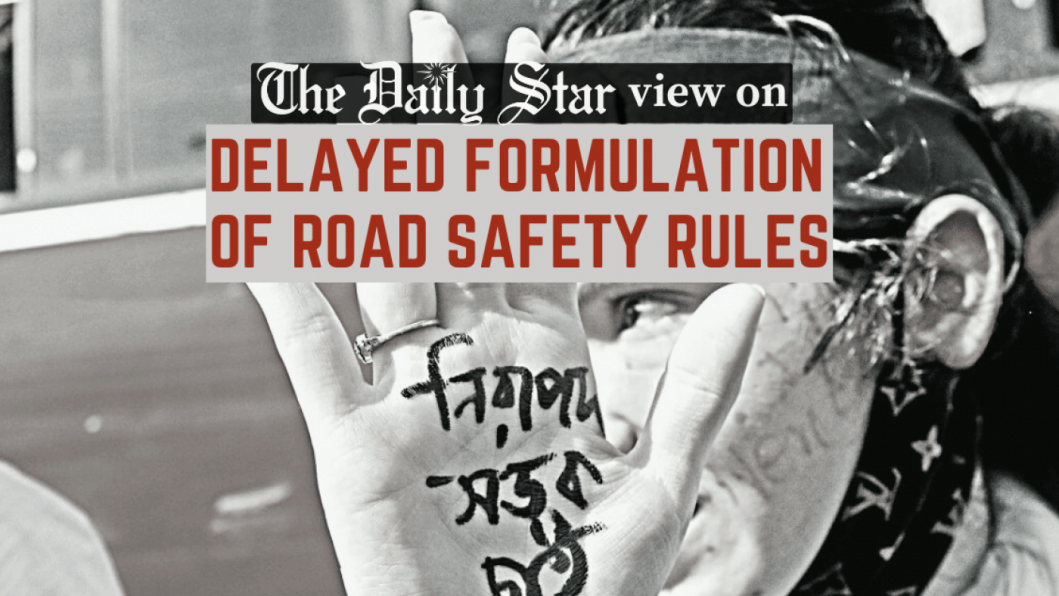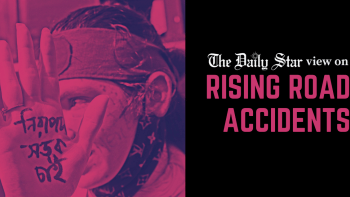Result, not rhetoric, is key for road safety

It's heartening to know the "rules" of the Road Transport Act (RTA) have finally been formulated, more than four years after the act was passed into law. According to the rules, announced on December 27, the family of a victim killed in a road crash due to reckless or negligent driving will get at least Tk 5 lakh in compensation. Victims losing an organ or suffering other life-changing injuries will get Tk 3 lakh each, while those who are likely to recover from injuries will get Tk 1 lakh. If properly implemented, these rules, among others, will hopefully bring some discipline in a sector where powerful transport associations use political connections and loopholes in the system to remain unaccountable.
But first, we must talk about the long delay in formulating these rules – which stands in marked contrast to the hurried enactment of the law in 2018, under pressure from students demonstrating for safer roads. Several sections of the law, including the one related to compensation, could not be enforced in the absence of the rules. The last four years of inaction have shown that, if given the chance, the state would rather delay redressal than hold those responsible to account. Its misguided preference for rhetoric over results, and for cosmetic changes over long-term reforms, has cost us dearly, as recent annual road crash figures have repeatedly highlighted. The newly formulated rules, and their desired impacts, must be seen in light of that experience.
As per the 2018 act, the government will create a fund for compensating and treating road crash victims; it will be created with a one-time or annual "contribution" from vehicle owners. While the rules do not specify how much money the government itself will put into the fund, they, however, mention how much a vehicle owner will have to pay, which varies depending on the type of vehicle. The process through which compensation claims will be settled has also been laid out.
All this is good news, but there are questions about some of the provisions. For example, the process of getting compensation or settling claims seems very bureaucratic, meaning additional suffering for bereaved families struggling to cope with their loss. One can also question the relatively small compensation package fixed, while the fees of many services provided by the Bangladesh Road Transport Authority have been raised – which, for a public-funded service provider, makes no sense at this time of economic turmoil.
Until now, families of victims could file writ petitions with the High Court seeking compensation, which happened rarely. Now, those seeking compensation will have to apply to a 12-member trustee board, which has already been formed, within a month of a road crash. But what will happen to the families of victims who lost their life or limbs before the rules were approved? Can they claim compensation, too?
Clearly, these issues need to be sorted as soon as possible. But most importantly, the authorities must ensure proper and regular enforcement of these rules. Enforcing the rules, as past experience shows, will the biggest challenge, one that the authorities must show their sincerity to overcome. Thousands of people are dying in road crashes every year; the government must ensure these rules contribute to creating an environment in which this can be prevented.


 For all latest news, follow The Daily Star's Google News channel.
For all latest news, follow The Daily Star's Google News channel. 









Comments